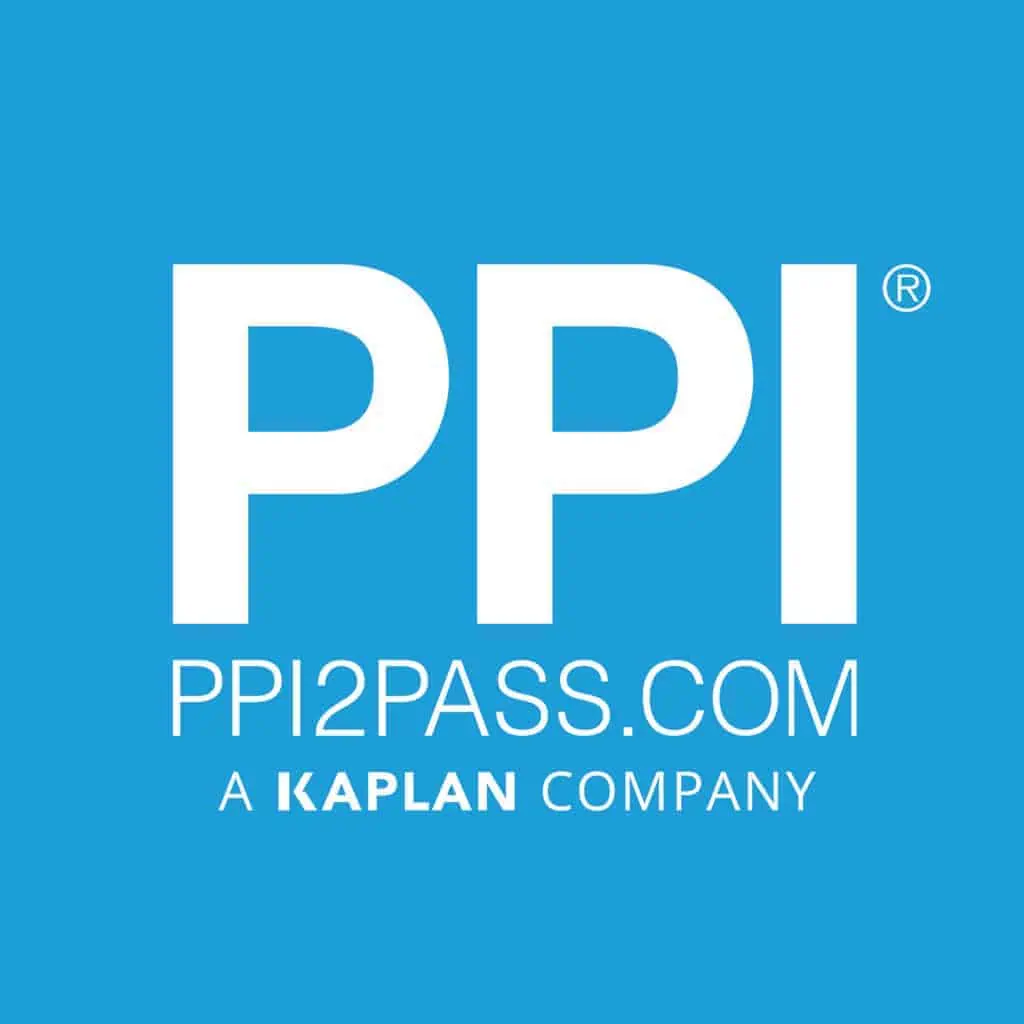Are you struggling to decide what depth exam you should take for your Civil PE Exam? Where do you start when trying to figure this out? Passing the PE exam is the last milestone in the journey towards your professional engineering license, so you must make the right decision.
In the next 5 articles, we will cover each of these Civil PE depth exams in detail, outline which topics show up on each exam, what the pass rates are for each topic, and provide some valuable information that will help you in your decision.
Let’s Look at the PE Civil: Geotechnical Depth Section of the PE Exam:
There are five different areas that you can choose from when taking the PE Civil exam which are:
- PE Civil: Geotechnical
- PE Civil: Construction
- PE Civil: Structural
- PE Civil: Transportation
- PE Civil: Water Resources & Environmental
Remember that the PE Civil exam is a breadth and depth examination. The breadth items (typically known as the morning section) cover topics from all areas of civil engineering. However, the depth items (also known as the afternoon section) focus more closely on a single area of practice, like Geotechnical Engineering.
What Is Geotechnical Engineering?
The Geotechnical field is concerned with the study of soil properties and their bearing capacity. Geotechnical engineering is also concerned with finding suitable solutions for any problem soils and choosing the best and most secured methods of design and construction for the foundations of engineering structures.
Here Are a Few Things to Note About the Civil Geotechnical CBT Exam:
- The exam is computer-based. It is a closed book with electronic references. The NCEES PE Civil Reference Handbook is included in the exam along with the design standards.
- Examinees have 9 hours to complete the exam, which contains 80 questions. The 9-hour time includes a tutorial and an optional scheduled break.
- The exam uses both the International System of Units (SI) and the U.S. Customary System (U-S-C-S).
- The exam is developed with questions that require a variety of approaches and methodologies, including design, analysis, and application.
This Is What You Can Expect to Be Tested on in the Exam:
- Project planning, such as cost estimating and project schedules.
- Means and Methods, such as construction loads and methods,
- Soil Mechanics, such as lateral earth pressure, soil consolidation, foundation settlement.
- Structural Mechanics, such as dead and live loads, trusses, bending, and Axial.
- Hydraulics and Hydrology, such as open-channel flow, stormwater, pressure conduit.
- Geometrics, such as basis circular curve elements and basis vertical curve elements.
- Materials, such as soil classification, soil properties, and structural steel.
- Site Development, such as excavation and embankment, construction site layout, and control.
- Site Characteristics, such as geophysics, subsurface exploration planning, drilling techniques, and more.
- Soil Mechanics, Laboratory Testing, and Analysis, such as Index properties and testing and Strength testing of soil and rock.
- Field Materials Testing, Methods, and Safety, such as Excavation and embankment, borrow source studies, laboratory, and field compaction.
- Earthquake Engineering and Dynamic Loads, such as Liquefaction analysis and mitigation techniques and Seismic site characterization.
- Earth Structures, such as Slab on grade. Ground improvement and Geosynthetic applications.
- Groundwater and Seepage, such as Seepage analysis/groundwater flow and Dewatering design, methods, and impact on nearby structures.
- Problematic Soil and Rock Conditions such as Karst; collapsible, expansive, and sensitive soils.
- Earth Retaining Structures (ASD or LRFD) such as Lateral earth pressure and Load distribution.
- Shallow Foundations (ASD or LRFD), such as bearing capacity, settlement, including vertical stress distribution.
- Deep Foundations (ASD or LRFD), such as Single-element axial capacity (e.g., driven pile, drilled shaft, micropile, helical screw piles, auger cast piles) and Lateral load and deformation analysis.
Here Are the Pass Rates for the Civil Geotechnical CBT Exam:
As of December 2021, the PE Civil: Geotechnical exam has a 54% pass rate for first-time takers and a 30% pass rate for repeat takers. You can view the full list of pass rates on the NCESS website.
Hopefully, this information will give you a better idea of what to expect on The Civil Geotechnical CBT PE Exam. Remember to consider your experience and interests and to check the passing rates when deciding what depth section to take for your PE Exam. Lastly, I would strongly recommend also previewing the exam by doing some exam prep courses that offer a variety of live and on-demand classes.
Looking at the previews of the practice exams for each discipline might help jog your memory of which areas have questions that are easier to study for. For some great prep courses visit our sponsor PPI today at ppi2pass.com to see all the options available for PE exam prep.
Sources:
College of Engineering Civil Engineering Department
NCEES: PE Civil exam
NCEES PE exam Pass Rates
This Episode Is Brought to You by PPI
PPI
I hope you found this article helpful. In upcoming articles, I will solve some more PE exam practice problems and answer other questions from our subscribers. Pass the PE Exam videos will publish weekly, so be sure to click the subscribe button so you don’t miss something that could make a substantial difference in your exam result.
Lastly, I encourage you to ask questions in the comments of this video, or on this page and I’ll read and respond to them in future videos. So, if there’s a specific topic you want me to cover or answer, we have you covered.
I’ll see you next week… on Pass the PE Exam
Anthony Fasano, P.E.
Engineering Management Institute
Author of Engineer Your Own Success

Leave a Reply